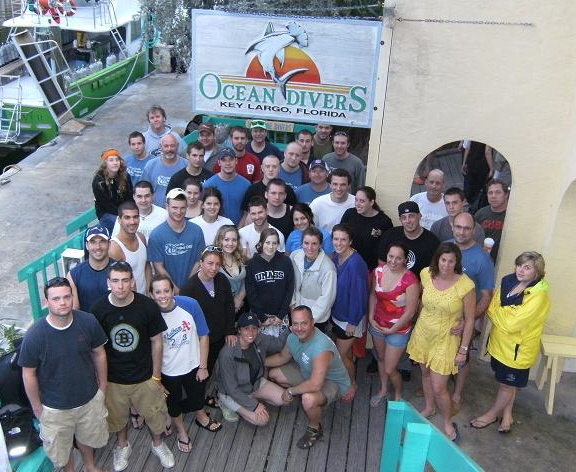The Diving Education Extension Program (DEEP) was started in 1979 by Bob Sparks at the University of Massachusetts at Amherst. Project Deep was started to teach students how to scuba dive and and also to give them warmer waters to equal out what they experienced in the cold waters of Massachusetts. In the beginning of the program college credits could be earned for completing a scuba course. In 2004 the program lost its ability for students to earn credit and enrollment dropped.
Dave Stillman, himself a graduate of Project Deep program, took charge and had to restructure the program. He spearheaded the program under the Fish and Wildlife Conservation Programs already being conducted at UMA. The credit program was again restored. All they needed next was some interested students.
I remember his numbers dropping drastically in this time period, to the point we all thought it would surely go under. Slowly, the numbers grew into what is again a thriving program.
They are again gracing our boats with eager, energetic and fun divers.

If you want to see "organization", come to the dock with a cup of coffee and watch this group conduct itself like a well rehearsed orchestra. They work magic. The students themselves are just a true delight to be around.
I have had the privilege to watch many in this program through the years and have become friends with a few of their members.
I have seen them come with as many as 73 students at a time. They either carpool or come in by the van load. It is always a joy to see the parking lot filled with cars dusty and a bit grimy from the road trip all sporting Massachusetts plates.
Project Deep has again arrived for their December and New Year diving trip. They come at least twice a year. Spring time is their Hell Ride which lasts 5 days. They have been doing this now for 33 years and we hope to see them for another 33 years.
Looking forward to having yard bird with you soon!
Connie Boykin
